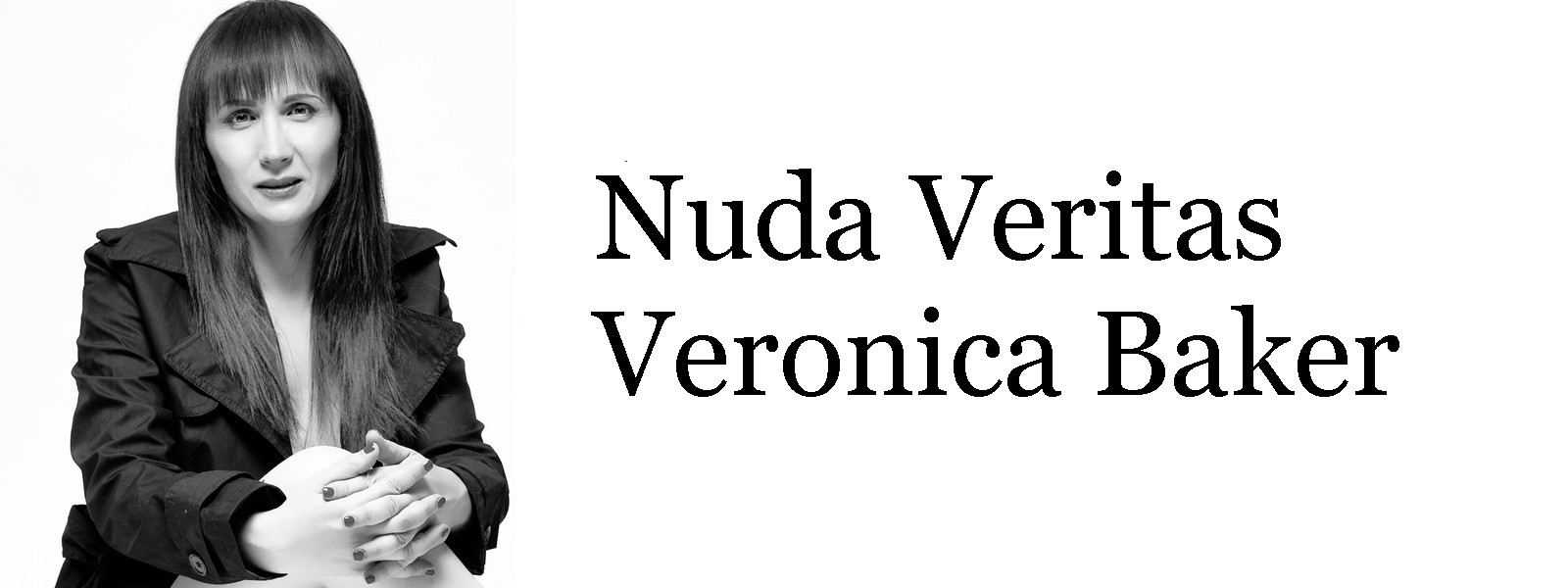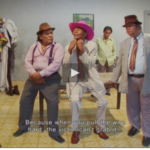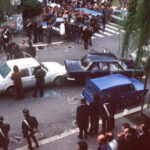December 31, 2024 Hidden history
The Internet has followed the same downward parabola.
Free radio. All it took was a voice, four records and a few ideas
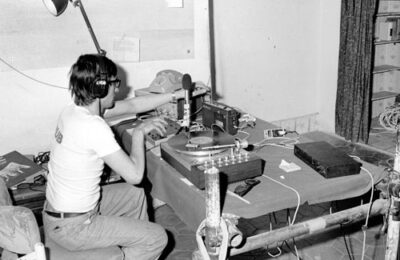
No particular attention is ever paid to definitions, and so when free radio or private radio are mentioned today, their meaning is reduced to mere synonyms.
However, the free radio stations of that time have nothing to do with today’s private radio stations.
If you want to draw a parallel, free radio has more to do with the emergence of the first Internet sites in the late 1990s.
In fact, in the 1970s, anyone with ridiculous equipment and a few records bought or borrowed from friends could have his or her own little space, often no larger than the front door, to spread his or her thoughts, but more importantly, his or her enthusiasm.
The ripple effect was disturbing and impressive in its magnitude.
There was a radio station in every neighborhood of every small town, and the DJ looked just like the neighbor or friend you had played soccer with the day before.
Those with more sophisticated equipment could cover miles and miles, even reaching areas far from the transmitter.
The liveliness, the enthusiasm and the desire to broadcast of these radios were their trump cards, but also their weakness : in fact, at the end of the 1970s, those with good ideas inevitably clashed with the logic of the market.
Here, a few radio stations, properly financed by sophisticated investors and equipped with very powerful transmitters, were able to achieve a significant territorial presence.
So here were a few radio stations, properly financed by sophisticated investors and equipped with very powerful transmitters, that managed to achieve a significant territorial presence.
The immediate advantage lay in the ever-increasing number of radio listeners who, once they had gotten over the novelty of being able to choose freely among the myriad of free voices, sought out the radio station that could be best tuned by directly manipulating the frequency modulation knob.
The price they had to pay was to leave more and more space for advertising and to change the voice from free to semi-free, until it was completely distorted to the point of being totally subservient, resulting in its exclusion from the passionately conceived and realized project.
Don’t you think we can see the same trend on the Internet?
In fact, the Internet has followed the same downward parabola as free radio.
In the mid-1970s, the phenomenon of frequency hoarding exploded.
An old issue of Corriere della Sera, which reports the news in large print, helps to reconstruct the chronology :
“Yesterday, an underground radio was broadcast for the first time. It is called Milano International…” (Corriere della Sera, 11.03.75).
And it is again a newspaper with a national circulation that reports that these free radio stations were a considerable nuisance to the government of the time, but also to the opposition :
“Seized by the Milanese magistracy Radio Milano International.
The first Milanese radio station had been broadcasting since March 10.Yesterday, an Escopost team raided the station’s headquarters.
The deactivation operations were followed live by thousands of radio listeners” (La Notte, 14.4.75).
And finally, the first acquittal, without the possibility of appeal, legitimizes the right of free radio stations to make their voices heard :
“Radio Milano International acquitted.
Legitimate production of private programs“. (La Stampa – 26.04.75).
The interruption of the “free” voices of the time was tantamount to a denunciation of the weakness of the State, already hard hit by terrorism and daily scandals.
Giorgio Gaber, in one of his plays in 1972, rightly stated :
“Freedom of expression is the measure of their power : they leave you your free space, what they call freedom, without the possibility of modifying or subverting anything.
That means: you can never bother anyone“.
Some free radio stations, however, began to cause trouble because they found no support in the center and even less in the left, which feared that such free information would open the way to the entry of other “masters”, as would happen later with the allocation of frequencies and the gradual commercial development of a product that could be distributed for free.
Above all, the PCI feared that free and uncontrolled radio could undermine its unique role as defender of the Italian proletarian classes.
It was Radio Alice, the least defensible radio station, the most anarchic and uncontrollable even internally, that paid the price.
The newspapers of the time reported the news with due prominence, even pointing to the possibility of a covert dictatorial coup :
“March 12, 1977.
The brief history of Radio Alice, accused of directing the radio riots in Bologna, ends with the Carabinieri raid.
Two years in the life of the most famous “free radio” in Italy, but two years that leave their mark.It was the first (and only) time in the history of Republican Italy that a radio station was shut down by manu militari“.
All that was left to silence a free voice was to accuse it of fomenting terrorism, the only way not to arouse the people’s indignation.
Today, as then, it is difficult to define what Radio Alice really was : there was no real editorial staff and, most importantly, no identifiable owner with a first and last name.
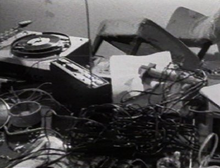
Anyone who had something to say, or even nothing to say, could take the microphone and make a rambling statement instead of a saxophone solo, a declaration of love to his girlfriend or John Lennon, simply read a poem, or even stand silently in front of the microphone.
There were no limits, no moderators, no self-control, no censorship.
This radio was far more disturbing than all the others put together.
On the night of March 12, 1977, it was forced into silence, and even tanks were inconvenienced to garrison the center of Bologna.
It was the first time in the history of republican Italy that a “news” newspaper was closed by the forces of law and order.
A chilling fact when you think about it.
The anarchist Radio Alice certainly had proselytes, but this is only a microcosm in the fantastic universe woven solely by the “feeling of being able to do anything” that was alive in those years.
Anyone could try.
All you needed was a voice, four records and a few ideas.
